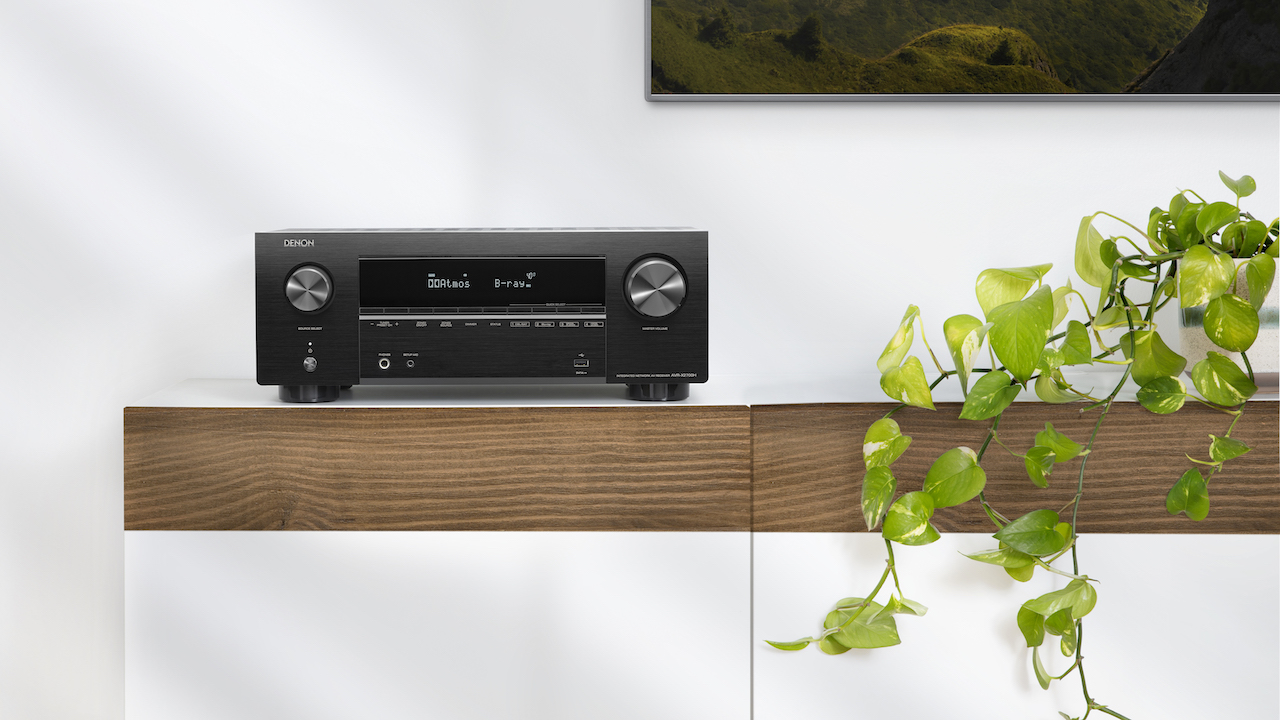World's first 8K AVR could future-proof your home cinema setup – and it's not too pricey
Want to be 8K-ready?

Sign up for breaking news, reviews, opinion, top tech deals, and more.
You are now subscribed
Your newsletter sign-up was successful
Is your home cinema setup ready for an 8K TV? Even if you're planning to buy an 8K TV in the very near future, but one of Denon's new AVRs (Audio/Video Receiver) could be a great purchase if you want to future-proof your home cinema system.
The new models – which are the world's first 8K-ready AV receivers – come with a range of configurations and prices, and they aren't as expensive as you may expect.
- The best AV receivers of 2020
- The best 8K TVs you can buy now
- What is 8K resolution?
The cheapest of the new 8K AVRs is the Denon AVR-X2700H, which costs $849 / £599 (about AU$1,220) – though you could spend up to $2,499 / £2,299 for the flagship model, the AVR-X6700H. Pricing is still to be confirmed in Australia, and we'll be sure to update this article as soon as we have it.
$850 / £600 is a lot of money to part with in any situation, but for the industry's first AVR capable of 8K upscaling? We're pleasantly surprised by that price, and judging by the specs, you get an awful lot for your money, including multi-room support, voice assistant compatibility, and support for 3D sound formats like Dolby Atmos.
Gaming-ready
Denon says that "8K is an exciting update and the new X-Series AVRs offer a suite of new features that home theatre enthusiasts, music lovers and gamers can implement straight away".
To prepare for the adoption of 8K TVs in the home, all of the new Denon AVRs come with a dedicated 8K HDMI input, HDR10+ and Dynamic HDR support, and a new HDMI feature called Quick Media Switching, which "allows a source to instantly switch the resolution or frame rate to eliminate screen blackout".
There's also support for HDR10, HLG (Hybrid Log Gamma) and Dolby Vision, and the AVRs can also "upscale existing HD and 4K content to 8K so more people can experience the power of 8K resolution".
Sign up for breaking news, reviews, opinion, top tech deals, and more.
Gamers haven't been forgotten, either. Denon says that 4K/120Hz pass through and Variable Refresh Rate can "reduce frame tearing and improve overall precision", while an Auto Low Latency Mode reduces lag.
What about the sound?
It's not just about the picture, of course. eArc support means that the X-Series AVRs can deliver "uncompressed and object-based audio from the TV to the receiver via a single HDMI cable". That means if you have Dolby Atmos speakers or a DTS:X-enabled soundbar, you'll be able to experience these 3D sound formats for immersive audio.
You shouldn't have to tinker around with the settings too much to achieve this. Denon says that "TVs play video directly from TV apps at best available picture quality – either 4K or 8K – while the receiver identifies the best available surround format for decoding".
If you already have HEOS-compatible speakers at home, like the Denon Home 150, you'll be able to stream music in multi-room groups. There's support for a range of streaming platforms, including Spotify, Amazon Music HD, and TIDAL, while the inclusion of both Bluetooth and Apple AirPlay 2 means you can stream Apple Music, too.

If that's not enough for you, the new Denon AVRs also work with Amazon Alexa, Google Assistant, and Siri, for hands-free control. Denon says that you can use Amazon Alexa "for a variety of commands, including switching inputs for different media players", while the Google Assistant and Siri functionality is limited to adjusting the volume and music playback controls.
So, even if you're not quite ready to deck out your home with an 8K TV, there are plenty of compelling features that could make one of the new Denon AVRs a great addition to your home cinema – here's hoping Denon can deliver on all of its promises.
If it can, the entry-level Denon AVR-X2700H could easily earn a top spot on our list of the best AV receivers of 2020.

Olivia was previously TechRadar's Senior Editor - Home Entertainment, covering everything from headphones to TVs. Based in London, she's a popular music graduate who worked in the music industry before finding her calling in journalism. She's previously been interviewed on BBC Radio 5 Live on the subject of multi-room audio, chaired panel discussions on diversity in music festival lineups, and her bylines include T3, Stereoboard, What to Watch, Top Ten Reviews, Creative Bloq, and Croco Magazine. Olivia now has a career in PR.